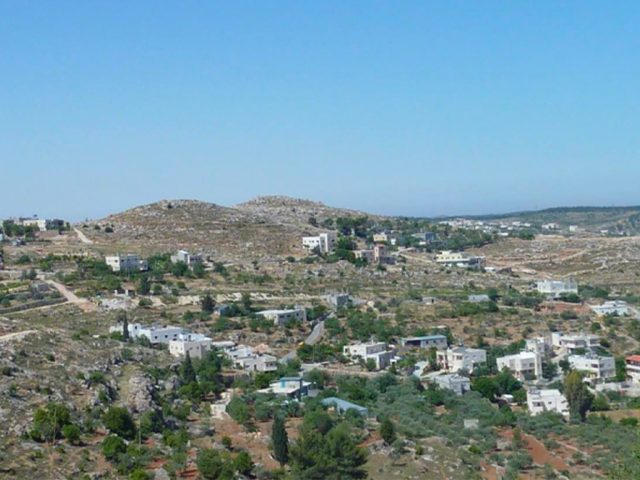Discover how Luton’s community adapts to road closures and infrastructure upgrades, turning short-term disruption into long-term sustainability and resilience. Learn more now!
The Complex Realities of the Israel-Palestine Conflict
Advocating peace is commendable but the Israel-Palestine conflict is complex and rooted in a history of territorial disputes, political tension, and deep-seated animosities. The matter isn't just about immediate ceasefires or recognition of states; it encompasses a myriad of factors that must be thoroughly understood and accurately addressed.

Accusations of Apartheid and Disproportionate Actions
Israel is often accused of practicing apartheid and taking disproportionate actions against Palestinians. However, Israel is a democracy where all citizens, including Arabs, share equal rights. Arab Israelis participate actively in the political landscape, serving in the Knesset and the military. The security barrier, frequently cited as evidence of apartheid, was built to prevent terror attacks which were rampant during its construction. This barrier was a response to a wave of suicide bombings targeting Israeli civilians, established post-Oslo Accord, pointing to the failure of the Palestinian leadership to pursue peace.
Intentions of the Israeli Government
The devastating attacks on October 7 by Hamas militants underscore the threats that Israel faces daily. These acts of violence involved murder, rape, and kidnapping of civilians by not only militants but also ordinary Gaza civilians. Defensive measures employed by Israel are thus perceived as essential for the protection of its people.
Claims implying that the Israeli government aims to eliminate the people of Gaza lack substantial backing. Israel's allowance of significant humanitarian aid into Gaza, despite ongoing conflicts, demonstrates a commitment to reduce civilian suffering. Experts like John Spencer from West Point’s Modern War Institute acknowledge Israel’s unprecedented efforts to save lives amidst urban warfare.
Impact on Civilians in Gaza
Reports on casualties in Gaza, usually generated by Hamas-controlled bodies, often lack reliability. Independent investigations reveal discrepancies, such as the hospital explosion caused by a Hamas misfire. Additionally, Hamas’s inclusion of combatants under 18 as children further skews casualty figures. Comparatively, the Israeli defense forces maintain one of the lowest ratios of civilian to combatant casualties, lower than many Western militaries in similar contexts, for example, the US and UK during their operations against ISIS.
Blockade and Humanitarian Situation
The blockade on Gaza is a collaborative effort between Israel and Egypt, not solely an Israeli imposition. Under international law, Egypt too has a responsibility to admit refugees, yet it maintains strict border controls. Israel, meanwhile, ensures the daily entry of hundreds of truckloads of goods into Gaza, fulfilling essential needs despite security risks.
Peace Process and Recognition of Palestine
Recognising a Palestinian state without addressing ongoing violence and terrorism could be seen as rewarding these actions. Peace demands direct negotiations where both sides recognise each other's rights and ensure mutual security. The election of Hamas by Gaza residents and the Palestinian Authority's reluctance to hold elections due to Hamas’s popularity complicate the peace process. Furthermore, the PA’s policy of financially rewarding acts of terrorism, combined with anti-Semitic curricula in Palestinian schools, perpetuates a cycle of hatred and violence.
Additional Considerations
- Security Measures: The separation barrier, erected during the Second Intifada, drastically reduced terrorist attacks, highlighting its necessity.
- Humanitarian Aid: Israel facilitates the entry of numerous truckloads of goods into Gaza daily, ensuring the supply of essential items to civilians.
- Arab Participation in Military and Politics: Many Arab Israelis serve in the IDF and police forces, such as the Druze and Bedouin communities with high enlistment rates.
- 7 October Attack Details: The attacks by Hamas on 7 October were marked by unprecedented brutality, reinforcing the need for Israel's defensive operations.
- Comparative Civilian Casualty Rates: Israel’s strategies aim to minimise civilian harm compared to higher civilian casualties in US and UK military campaigns against ISIS.
In conclusion, advocating for peace is vital but must be based on a comprehensive understanding of security threats and geopolitical realities. Israel’s measures are fundamentally defensive, designed to protect its citizens from persistent threats. A balanced approach to peace must consider these security concerns and involve all relevant parties, including Egypt, in the pursuit of a lasting solution.
Letters published do not reflect the views of the Bedford Independent.
If you would like to respond to any issues raised, please email: [email protected]
